Inevitable production direction
In recent times, China has tightened the management of growing area codes, packaging facilities and quality inspection of imported durian for O-yellow and Cadmium. Therefore, Vietnam's durian export market has been more or less affected. In Binh Thuan alone, there are currently about 4,000 hectares of durian, of which Ham Thuan Bac district has about 1,500 hectares, with an average yield of 20 tons/ha. Durian is grown mainly in 4 communes: Dong Tien, Dong Giang, La Da, and Da Mi.
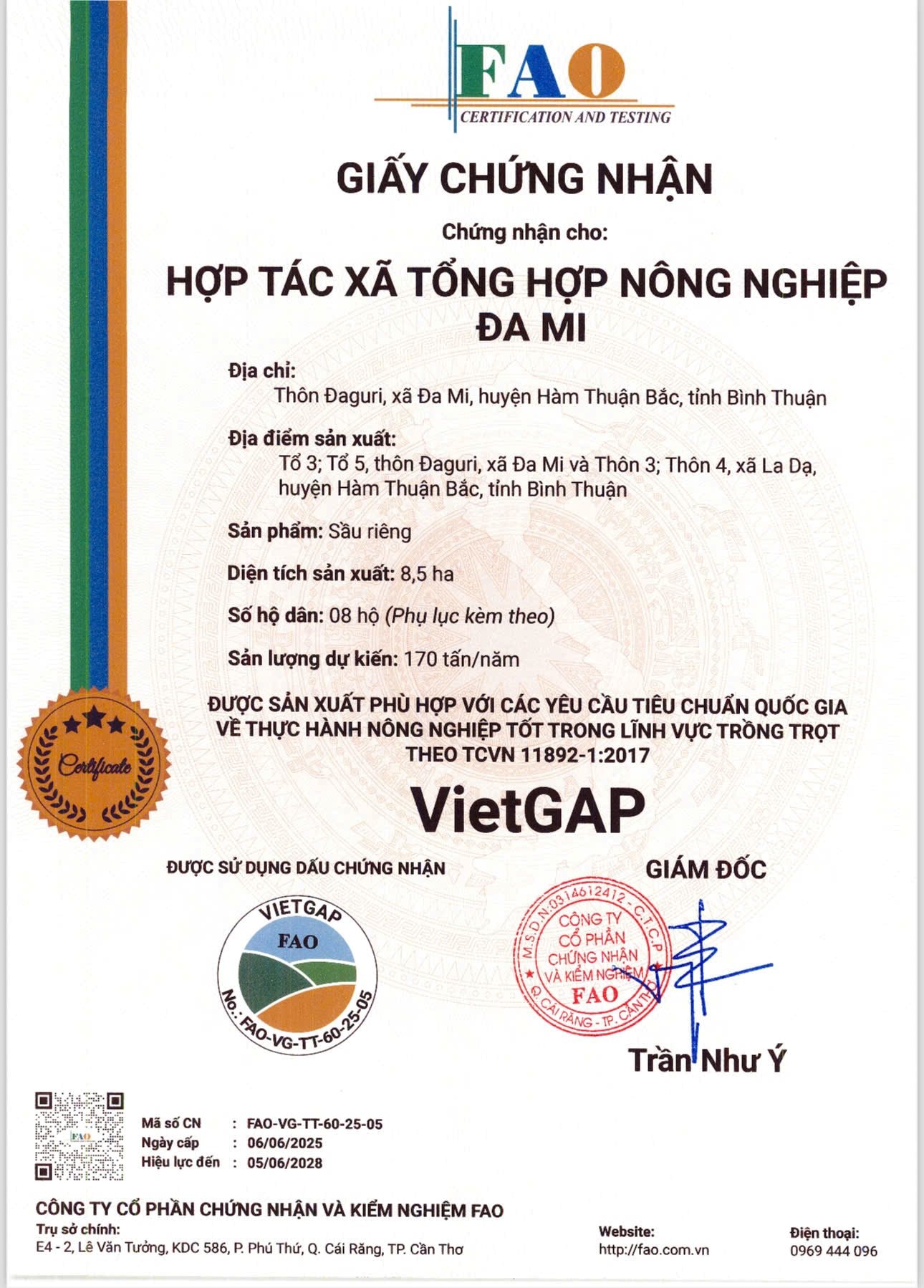
In that context, with the orientation of producing durian with high efficiency and sustainability, the Provincial Agricultural Extension Center has just coordinated with Ham Thuan Bac district and Da Mi Agricultural Cooperative to deploy the model of "Intensive cultivation of organic durian meeting VietGAP standards" in Da Mi commune, with a scale of 8.5 hectares/8 households. The model aims to transfer technical advances according to VietGAP standards towards safety according to the chain linkage adapting to climate change. At the same time, increase economic efficiency compared to conventional production by 15-20%, mobilize farmers to change their awareness and farming practices, and replicate the model of intensive cultivation of durian according to VietGAP standards every year in key areas of the province.
There are 8 households in 2 communes of Da Mi and La Da of Ham Thuan Bac district implementing the model such as Mr. Duong Thanh Binh, Nguyen Pham Trieu, Hoang Sinh Nam... These households said that they initially applied the form of electronic diary on the App page: Binh Thuan Digital Agriculture and moved towards tracing the origin by scanning QR code. Householders do not use herbicides to kill weeds, instead use organic microbial fertilizers to fertilize, increase the use of biological drugs. At the same time, limit the use of chemical fertilizers and drugs, strictly follow the quarantine period before harvesting the products.
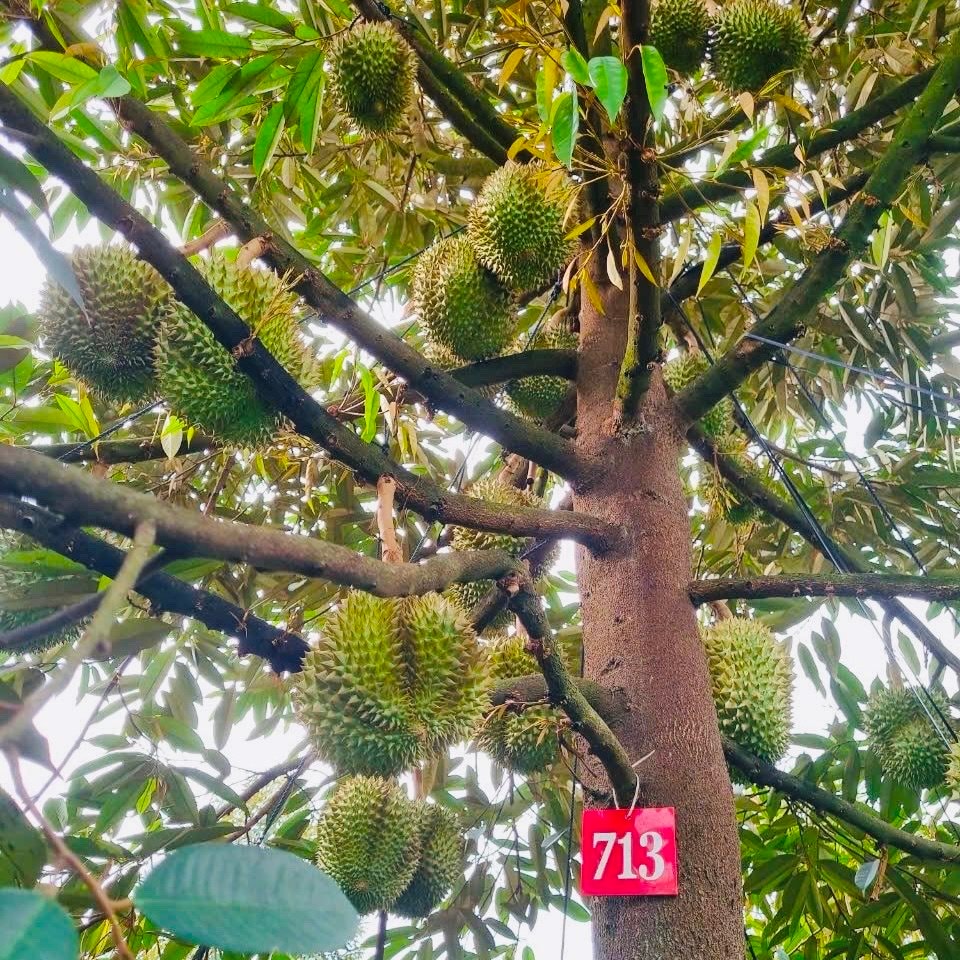
Promoting the connection between production and market
According to the assessment of the Agricultural Extension Center and households implementing the model, the total investment cost for 1 hectare of durian in the model is about 132 million VND/ha, a decrease of 55.6 million VND/ha compared to outside the model, mainly due to savings in fertilizer and pesticide costs. Compared to gardens outside the model, producing 1 hectare of durian in the model has a higher profit of nearly 100 million VND/ha.
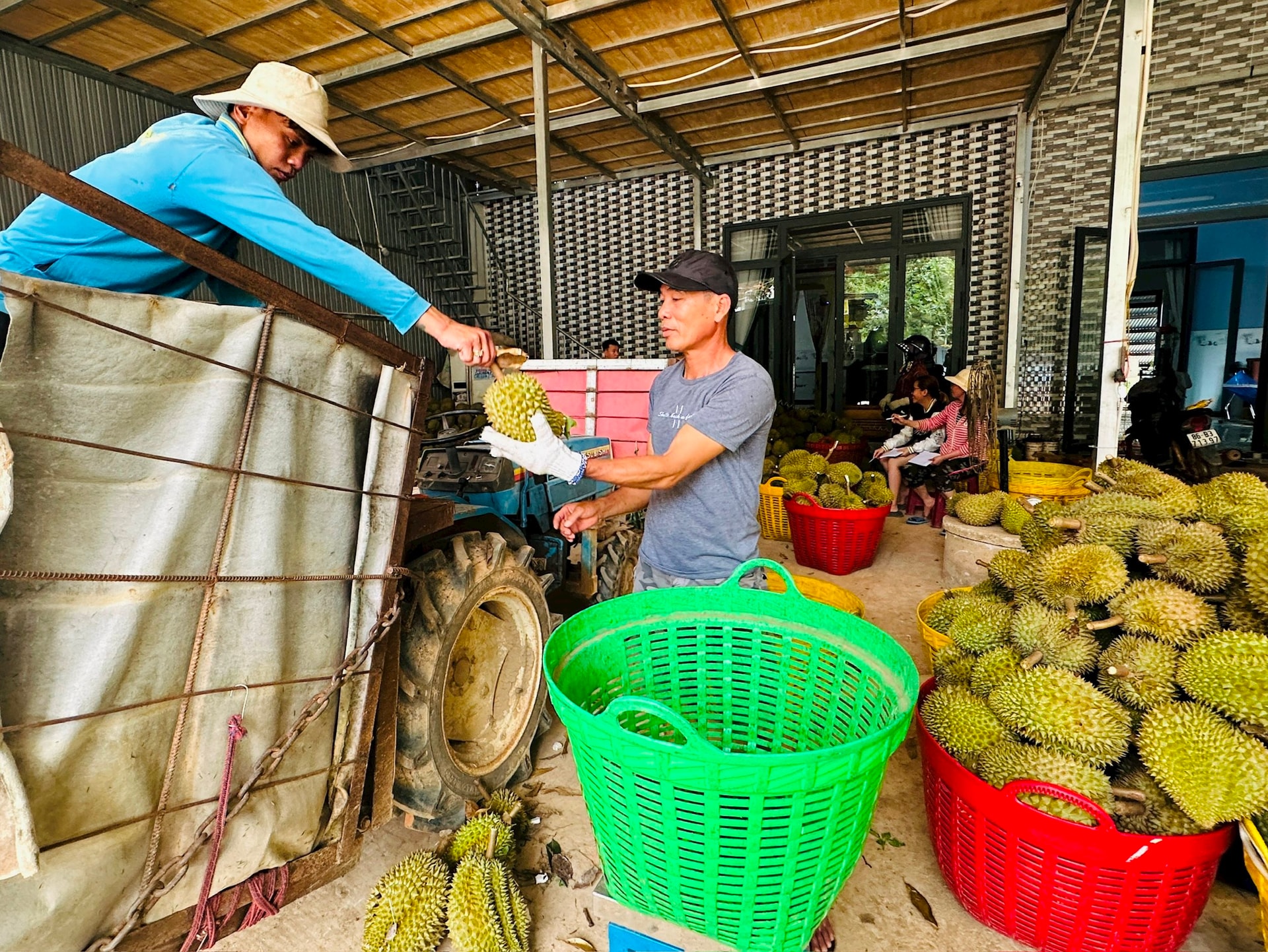
Notably, through technical training, households have mastered the process of producing durian according to VietGAP standards. At the same time, they have learned how to keep a paper diary, an electronic diary, and a list of recommended pesticides for durian, and prioritized the use of organic microbial fertilizers and biological pesticides to effectively apply throughout the production season of the year. In cultivation, households know how to increase the use of organic microbial fertilizers and biological pesticides in production, contributing to improving the soil, increasing productivity and quality, and creating safe products. The model also creates a positive change in the awareness, thinking, and actions of farmers, helping them understand that in production and business, product quality is a prerequisite and vital condition for maintenance and development. Not only that, producing durian according to VietGAP standards also promotes the connection between production and the market. This will bring benefits and higher income to producers, gradually building a brand for VietGAP durian, contributing to protecting the health of the community.
The provincial Agricultural Extension Center said that the transfer of advanced technical knowledge on intensive durian cultivation according to VietGAP standards helps farmers gradually change traditional farming practices. At the same time, it is a place for visiting and studying for local households and cooperative groups that want to invest in the direction of VietGAP.
According to the Binh Thuan agricultural sector, the total durian growing area in the province is about 4,000 hectares, concentrated in the three districts of Ham Thuan Bac, Duc Linh and Tanh Linh. Of which, 2,000 hectares are in the commercial period with an average yield of 15-30 tons/ha, and a harvest output of about 60,000 tons per year. For sustainable development in the coming time, the provincial Agricultural Extension Center recommends that cooperatives continue to maintain and implement the annual VietGAP durian production process, gradually expanding the supply market. Along with that, maintain regular updates of daily electronic diary records, monitor and determine the correct time of isolation of fertilizers, pesticides and harvest time, as well as serve as a basis for traceability. Link with local cooperatives in the production and consumption of products to meet the needs of the market in the province and outside the province. Along with that is to promote trade and advertise VietGAP durian products to increase the value and selling price of the product, increasing income for people.
Da Mi Agricultural Cooperative (Daguri Village, Da Mi Commune, Ham Thuan Bac) was assessed and certified by the FAO Certification Organization for VietGAP certification on June 6, 2025. The facility achieved 100% of VietGAP standards and was granted VietGAP certification for durian products, with an area of 8.5 hectares and an expected output of 170 tons/year.
Source: https://baobinhthuan.com.vn/binh-thuan-co-them-dien-tich-sau-rieng-vietgap-131433.html




![[Photo] Prime Minister Pham Minh Chinh chairs meeting of National Steering Committee on International Integration](https://vphoto.vietnam.vn/thumb/1200x675/vietnam/resource/IMAGE/2025/8/26/9d34a506f9fb42ac90a48179fc89abb3)


![[Photo] Prime Minister Pham Minh Chinh receives CEO of Samsung Electronics](https://vphoto.vietnam.vn/thumb/1200x675/vietnam/resource/IMAGE/2025/8/26/373f5db99f704e6eb1321c787485c3c2)
![[Photo] Multi-colored cultural space at the Exhibition "80 years of the journey of Independence - Freedom - Happiness"](https://vphoto.vietnam.vn/thumb/1200x675/vietnam/resource/IMAGE/2025/8/26/fe69de34803e4ac1bf88ce49813d95d8)
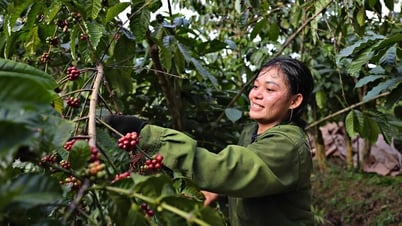



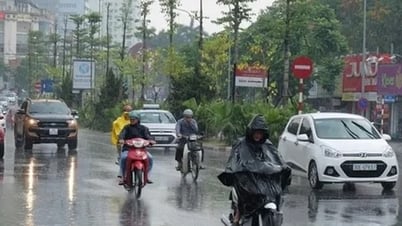
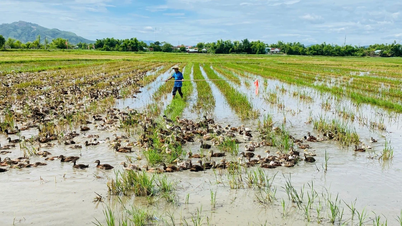



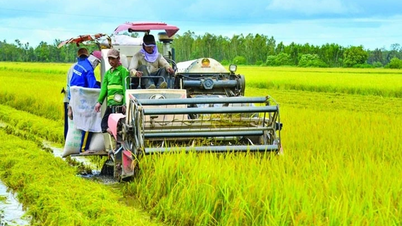






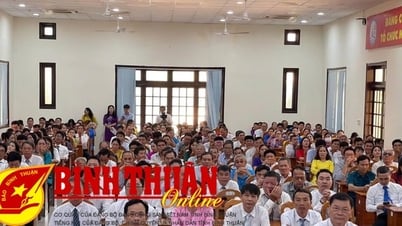

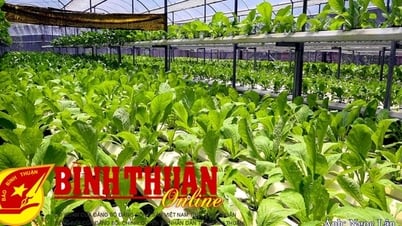
































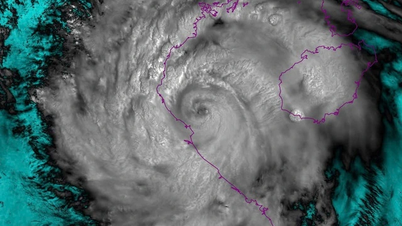
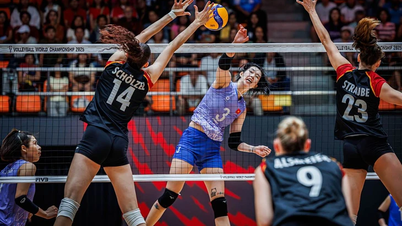










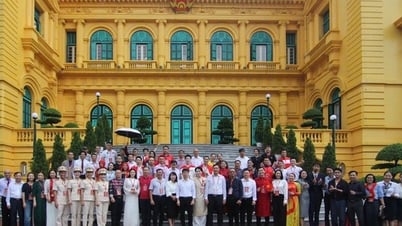


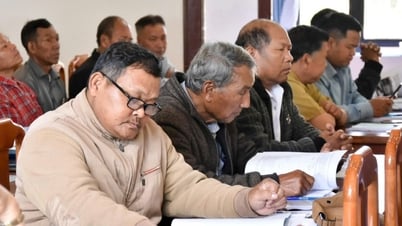

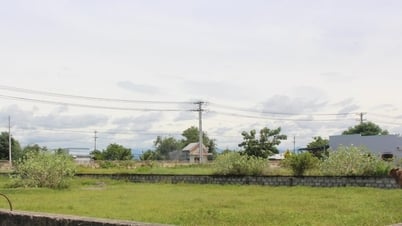
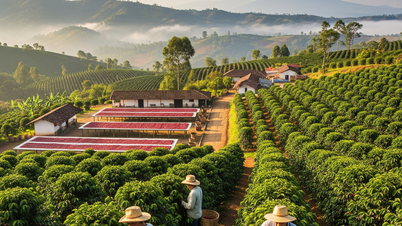






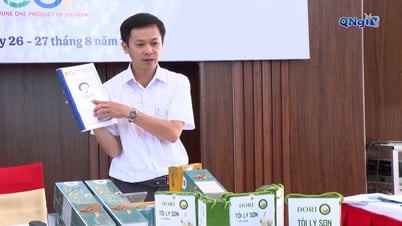









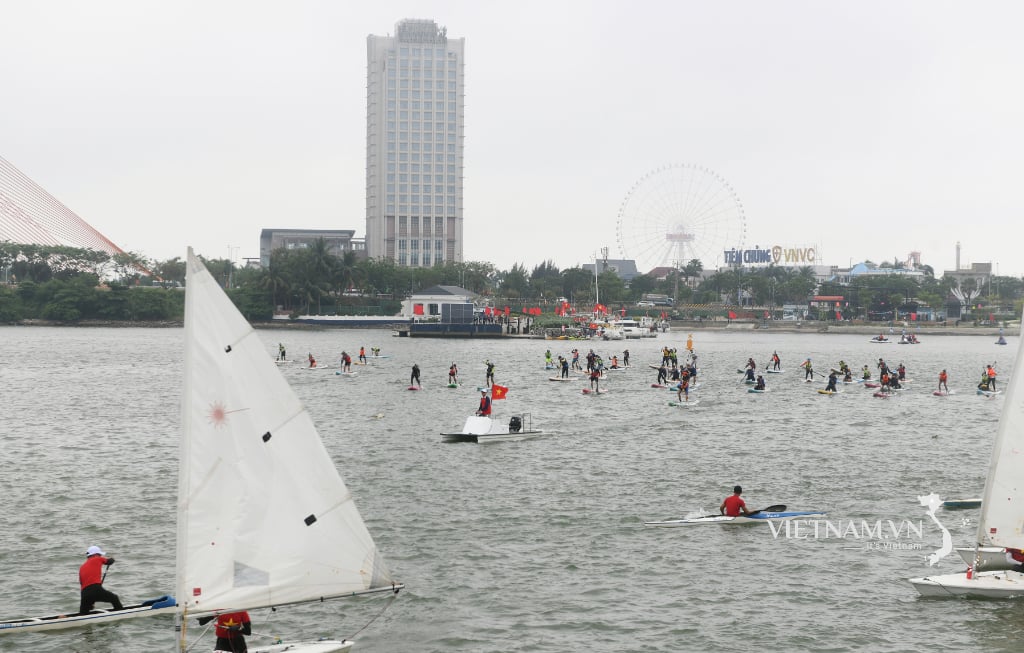
Comment (0)